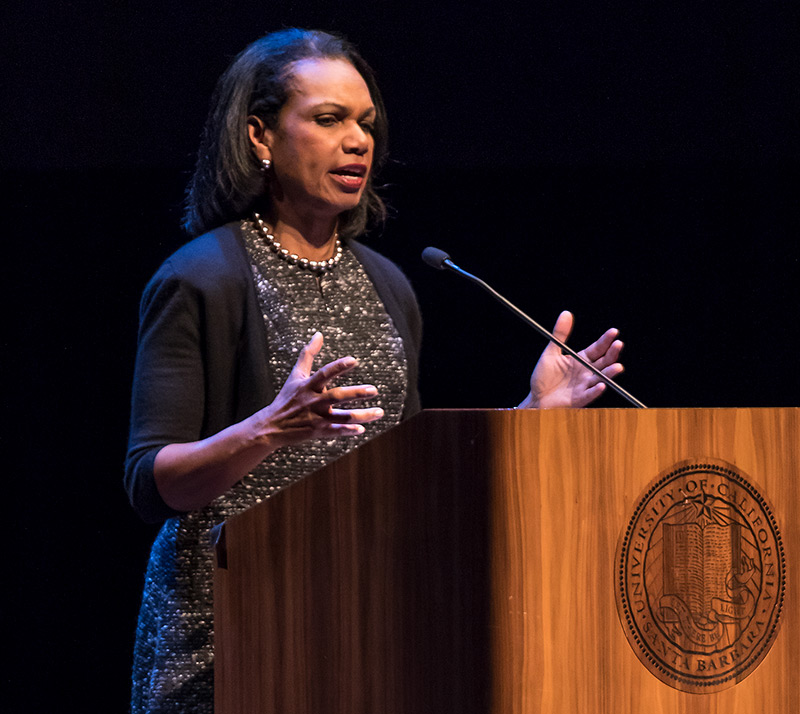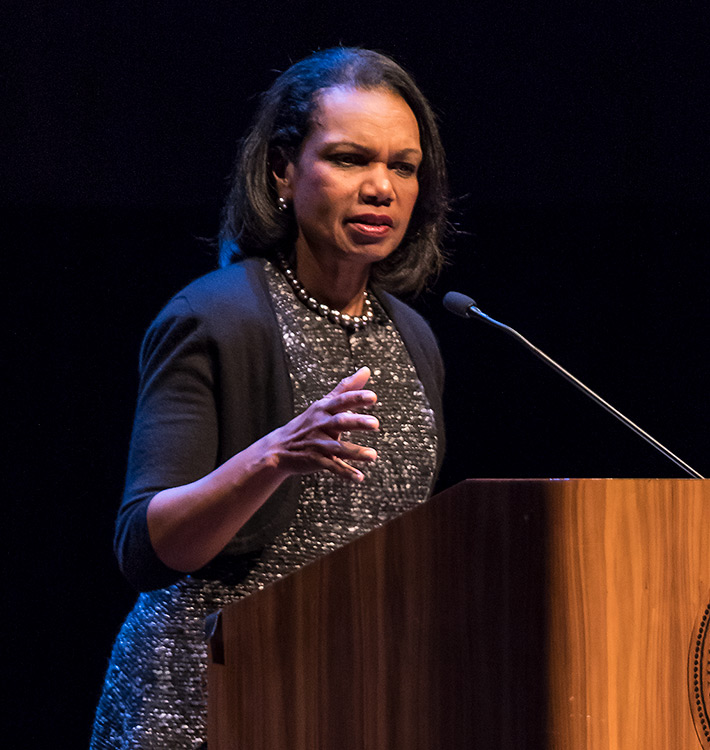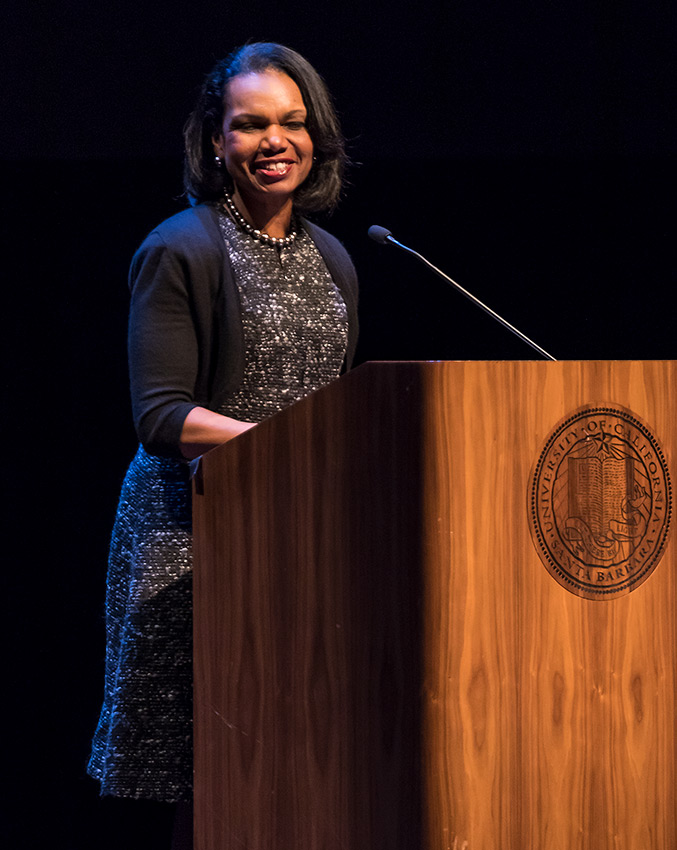Former National Security Adviser and Secretary of State Condoleezza Rice made some great points during her UCSB Arts & Lectures sponsored visit to Santa Barbara last week to promote her book “Democracy: Stories from the Long Road to Freedom.” In that book and in her speech at the Arlington Theater, she laid out a mostly convincing argument for the American diplomacy and promotion of democracy that began with the Marshall plan after World War II. She asserts that the wisdom and success of using the power and wealth of this country to rebuild a devastated Europe contributed to huge economic growth and prosperity there and most especially here, a win-win for all. She attributes the rise of nationalism and isolationism, the anti-other movements that are on the ascendency (again), to rising economic inequality as the U.S. and other developed nations ratchet down the kind of aid-as-investment that began with the Marshall plan and was crucial in fostering future stability and growth. It’s all a bit of American exceptionalism through rose-tinted glasses, and she had to admit that in the political climate here and abroad since the election of “our current president,” that kind of inclusive and far-sighted diplomacy has very little support among those in power. Let’s face it, right now they don’t have much interest in inclusion, opportunity and success for anyone who isn’t American, white and male. So, is the great U.S. democratic experiment, the “shining city on the hill” fast becoming an illusion or can we pull out of this downward spiral of self-interest and short-term monetary gain for the few? Ms. Rice is cautiously optimistic, and she has done a little re-jiggering of her belief in the rightness of America as the beacon of hope for the world, balancing realpolitik with moral imperative and justice.







